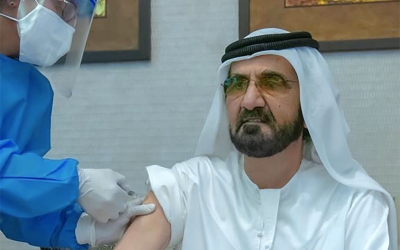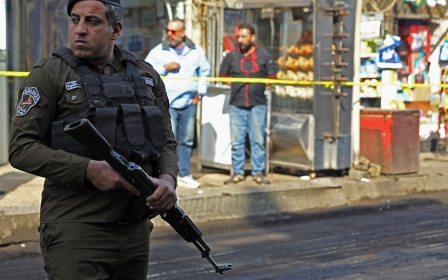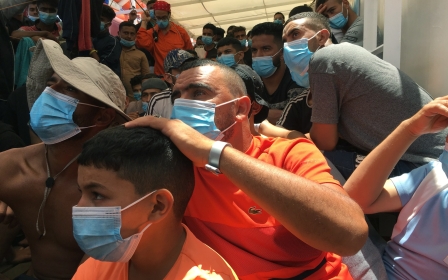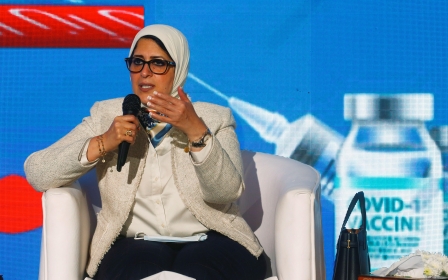In Basra, fake Covid PCR tests allow Iraqis to fly without negative result
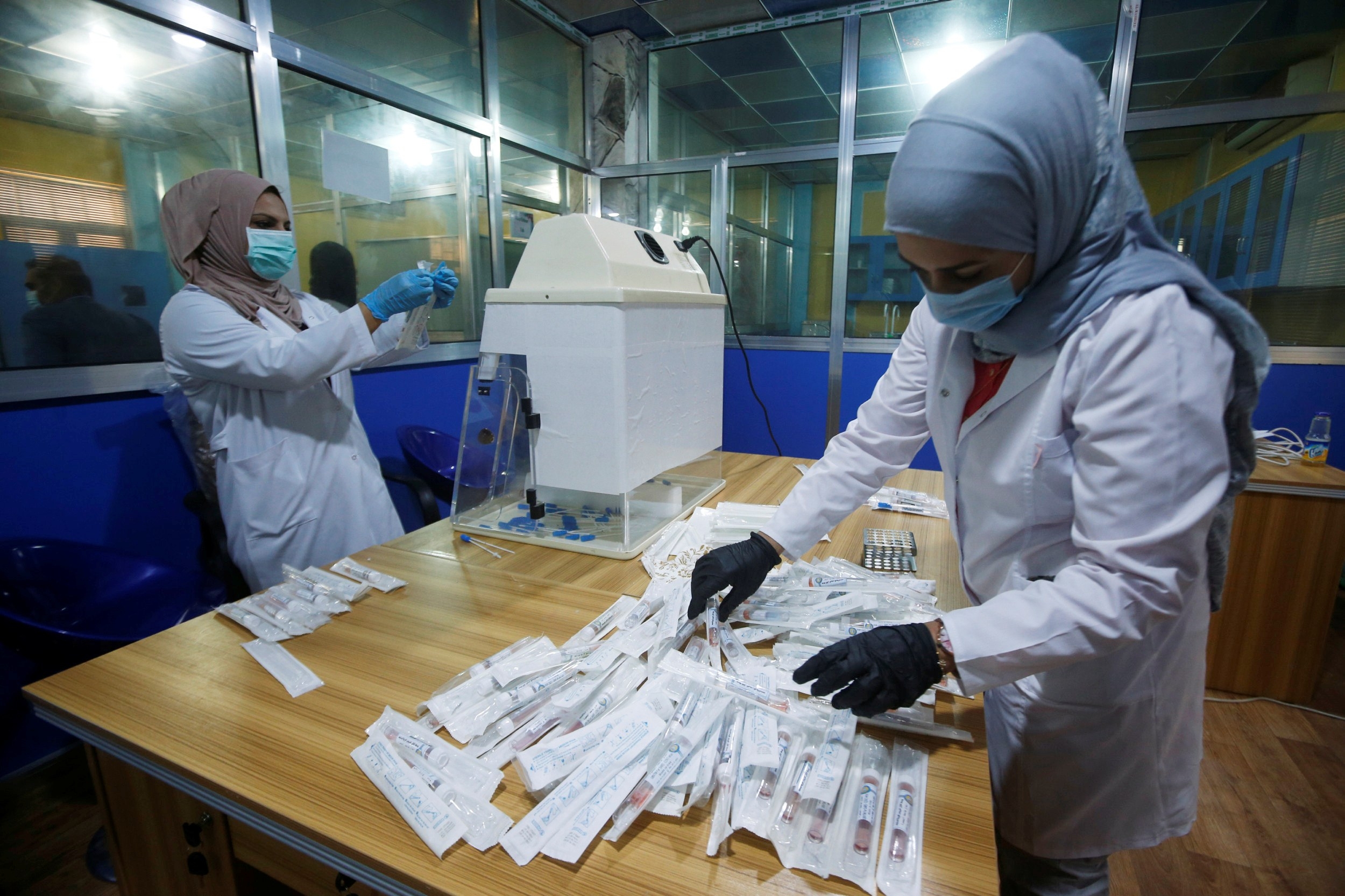
Travel agencies in Iraq’s Basra are issuing fake PCR test results to allow passengers to fly abroad without confirming they are not carrying the coronavirus, Middle East Eye can reveal.
Like many countries worldwide, Iraq requires anyone passing through its airports to present a negative PCR test carried out within 72 hours of travel. The country has endured a punishing pandemic, recording over 13,000 Covid-related deaths to date, and fears are mounting over new variants circulating.
PCR tests can be acquired from governmental hospitals. In southern Iraq’s Basra, the main testing centre is at Al-Zubair General Hospital, about 22 km away from the city centre. The test costs 50,000 Iraqi dinars ($35).
'I found the Iraqi authorities were paying no attention to the PCR paper. I even travelled twice using the same negative test result'
- Mohammed Ahmed, 26
However, MEE spoke to many passengers who said they would not take a PCR test at the hospital, because it is located far from their homes, or they did not want to risk their travel being disrupted if they tested positive.
To get around this, passengers are paying travel agencies $70-$100 for a false document recording a negative test result, which the companies say are being issued by the hospital for them.
New MEE newsletter: Jerusalem Dispatch
Sign up to get the latest insights and analysis on Israel-Palestine, alongside Turkey Unpacked and other MEE newsletters
Mohammed Ahmed, 26, said he didn’t want to risk losing money on a plane ticket.
“If I book a ticket and then my PCR shows positive, they will not refund the payment. So I prefer to get it in a way that avoids that bad policy,” he told MEE.
“At first I thought the travel measures in the airport were being tightened. But after travelling more than once I found the Iraqi authorities were paying no attention to the PCR paper. I even travelled twice using the same negative test result,” he added.
“I admit what I did was wrong. But when I found the state’s measures are routine and the health authorities do not care about the passengers’ PCR test, I chose to get it from travel agencies. It is much easier and you don’t have to go to the lab in al-Zubair.”
'Send all passports'
At Al-Zubair General Hospital, an employee told MEE no documents are issued unless a passenger comes to the facility themselves and takes the PCR test.
“Travel agencies’ claims that the PCR documents they issue are real and original is not correct. We are the only office that has the authority to do and issue the PCR test,” said the employee, who spoke on condition of anonymity.
Yet multiple travel agencies visited by MEE insisted they can acquire negative PCR test documents from Al-Zubair General Hospital remotely. The agencies said they simply send a copy of the passenger’s passport to someone working in the hospital testing centre, and the desired document is sent back within a few hours.
When MEE walked into one Basra travel agency, the identity of which will remain anonymous for security reasons, and asked for a fake PCR test result, the receptionist deferred to her boss.
The manager then called MEE, saying: “Save my WhatsApp number, this is my personal number, send all the passports over it, then I will issue the PCR to you.”
A manager of another travel agency, again speaking on condition of anonymity, said his business has contacts in the hospital that make the arrangements.
“They provide us with original PCR documents, which cost us $50 each, just the same as the ones they issue to the passengers who attend personally to the PCR centre,” he said, adding that the arrangement is kept secret.
Media awareness
Not all travel agencies are in on the racket. Some insist customers are tested and can provide the genuine documentation.
“The mean-spirited people who own travel agencies have no values, principles and morals, and are contrary to Sharia. In some ways they play a bad role in public health, they help the spread of Covid-19 between passengers on airplanes by issuing the PCR documents illegally,”said Ameer Ghazi, director of Anwar AlSindbad tourism company in central Basra’s Al-
Ghazi blamed the authorities for not tackling the issue of fake PCR tests, but also for putting the testing centre so far out of the city.
'It is important for people who are paying for these made-up PCR tests to know that they are jeopardising their lives and the lives of their loved ones'
- Dr Wael Hatahit, WHO
“One of the reasons that makes people not go to take a real PCR test is that they are afraid of knowing themselves if they actually got the virus. Furthermore, there is a lack of media awareness about the necessity of doing the test,” he added.
Ghazi noted that claims the fake test results are not provided by the Al-Zubair hospital are likely false, “because the papers contain a thermal stamp, regular stamp and barcode, and it is difficult to forge that”.
Dr Wael Hatahit, acting World Health Organisation representative for Iraq, told MEE he was not aware of such a practice, though knew that fake PCR tests were a phenomenon found in other countries.
“I’m sure that the Ministry of Health in Iraq is doing its best to curb down on such behaviour. Nonetheless, I would like the media to support these efforts by spreading more awareness.
"It is important for people who are paying for these made-up PCR tests to know that they are jeopardising their lives and the lives of their loved ones,” he said.
More testing centres
In December, Basra’s health directorate opened two more PCR testing centres, one in Al-Qurna hospital, about 75km out of town, and another in the central Al-Mawanee hospital.
But Sameer Younis, director of Basra airport, said it would help avoid fraud if a testing centre was set up in the airport itself.
“Six months ago, we told the Basra Health Directorate that we are able to do the PCR test for passengers inside airport for free or a small amount money to help people get the test easier, but the Basra’s health authority did not respond to our offer to cooperate with us on this matter,” he said.
'Putting an end to the pandemic is the responsibility of all of us. It is not a financial concern but a health matter'
- Ahmed Alazraqi, 30
However, Dr Abbas Khalaf al-Tamimi, the head of Basra Health Directorate, stressed it was not possible to pursue such a plan.
“It is not practical to keep passengers waiting inside the airport until the results appear. Moreover, all rapid flow tests [which give results within a few minutes] are unacceptable,” he said.
Ahmed Alazraqi, 30, is adamant that passengers such as himself should be as vigilant as possible, and follow the rules.
“To be safe, I take the PCR test in the government lab in Al-Zubair General Hospital. I not only care about myself but also my family, friends and other passengers’ lives,” he said.
“Putting an end to the pandemic is the responsibility of all of us. It is not a financial concern but a health matter,” he added.
“I ask the local health authorities to open another PCR unit in central Basra to help people get the test easier and closer to their homes.”
Middle East Eye delivers independent and unrivalled coverage and analysis of the Middle East, North Africa and beyond. To learn more about republishing this content and the associated fees, please fill out this form. More about MEE can be found here.


